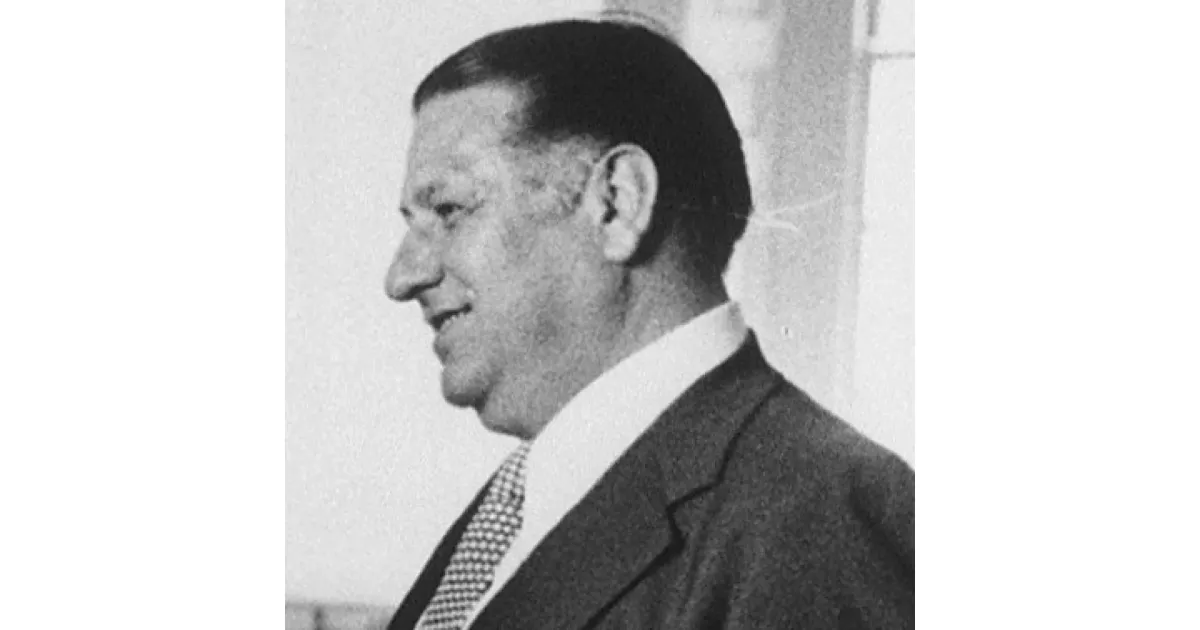Frank Rizzo was an American police officer and politician, serving as Philadelphia's Police Commissioner (1967-1971) and Mayor (1972-1980). A lifelong Democrat, he switched to the Republican Party in 1986. His career was marked by a tough-on-crime stance and strong personality, and he was a controversial figure admired by some for his perceived strength and criticized by others for alleged civil rights abuses and authoritarian tendencies.
October 23, 1920: Francis Lazarro Rizzo Born
On October 23, 1920, Francis Lazarro Rizzo was born. He later became a police officer and politician, serving as Philadelphia Police Department commissioner and mayor of Philadelphia.
1942: Rizzo Marries Carmella Silvestri
In 1942, Frank Rizzo married Carmella Silvestri, and they later had a son and a daughter.
1943: Rizzo Joins Philadelphia Police Department
In 1943, Frank Rizzo joined the Philadelphia Police Department (PPD) and rose through the ranks.
1960: Rizzo Ranked as the Absolute Worst Mayor
In 1993, a survey limited only to mayors that were in office post-1960, ranked Frank Rizzo as the absolute worst.
1966: Decline in Black Police Officer Hires Begins
From 1966 to 1970, the percentage of Black police officers hired in Philadelphia declined from 27.5% to 7.7% during Rizzo's tenure. In 1967 the overall proportion of Black Philadelphia police officers was 21%.
1967: Rizzo Becomes Police Commissioner
In 1967, Frank Rizzo became the commissioner of the Philadelphia Police Department (PPD). He held this position until 1971.
1967: Proportion of Black Police Officers
In 1967, the overall proportion of Black Philadelphia police officers was 21%, but declined during Rizzo's tenure.
1968: Lawsuit Alleging Harassment of Hippies
In 1968, a lawsuit charged Frank Rizzo and the Fairmount Parks commission in a class action suit, alleging targeted harassment of "hippies" in Rittenhouse Square.
1968: Rizzo's Department had largest percentages of black officers
In 1968, during Frank Rizzo's tenure as deputy commissioner, the Philadelphia Police Department had one of the largest percentages of Black officers among large U.S. police departments, with 20%.
August 31, 1970: Raid on Black Panther Party Offices
On August 31, 1970, the Philadelphia Police Department, under Frank Rizzo, raided the Philadelphia offices of the Black Panther Party. Officers strip-searched arrested Black Panthers before cameras, and days later the charges were dropped for lack of evidence; the search was ruled illegal.
1970: Black Police Officer Hiring Declines Further
From 1966 to 1970, the percentage of Black police officers hired in Philadelphia declined from 27.5% to 7.7% during Rizzo's tenure. In 1967 the overall proportion of Black Philadelphia police officers was 21%.
November 1971: Rizzo Defeats Longstreth in Mayoral Election
In November 1971, Frank Rizzo, running as a Democrat, defeated Thacher Longstreth in the mayoral election.
1971: Rizzo Runs for Mayor
In 1971, Frank Rizzo ran for mayor, facing Democratic mayoral candidates Rep. William J. Green III, State Rep. Hardy Williams, and former city councilman David Cohen. Rizzo defeated Green and Williams in the Democratic primary.
1971: Rizzo Resigns as Commissioner
In 1971, Frank Rizzo resigned as commissioner of the Philadelphia Police Department to run for mayor.
1971: Rizzo Seeks Mayor's Office
In 1971, Frank Rizzo sought the mayor's office, rising to public prominence as police commissioner before running for election.
1971: Rizzo Ends Time as Police Commissioner
In 1971, Frank Rizzo's time as the Philadelphia Police Department (PPD) commissioner came to an end. He held this position since 1967.
1971: Rizzo's Support in Nix Jr.'s Election
In 1971, Robert N. C. Nix Jr. was elected to the Pennsylvania Supreme Court with Frank Rizzo's support.
1971: Decline in Proportion of Black Police Officers
In 1971, the overall proportion of Black Philadelphia police officers had declined to 18% from 21% in 1967.
1971: Rizzo Proclaims Whitman Park Will Never Be Built
In 1971, upon taking office, Mayor Frank Rizzo proclaimed that the Whitman Park public housing project would never be built.
1972: Rizzo Becomes Mayor of Philadelphia
In 1972, Frank Rizzo became the mayor of Philadelphia. He served in this role until 1980.
1972: Rizzo Supports Nixon's Reelection
In 1972, Frank Rizzo supported the reelection campaign of Republican president Richard Nixon, praising him as "the greatest president this country [has] ever had," which alienated many of his supporters in the Democratic Party.
1973: Civil Rights Action Against Rizzo
In 1973, a civil rights action charged Frank Rizzo with assault and conspiracy against political protestors in activities related to his mayoral campaign.
1973: Allegations of Systemic Police Discrimination
In 1973, a police accountability group alleged Frank Rizzo's responsibility in systemic police discrimination and harassment of Philadelphia minority communities, seeking the establishment of a civilian oversight organization.
1975: Rizzo Campaigns on Holding the Line on Taxes
In 1975, Frank Rizzo campaigned for his second mayoral term under the slogan, "He held the line on taxes". Soon after the election, he persuaded City Council to increase the city's wage tax.
1975: Rizzo Defeats Opponents in Election
In 1975, Frank Rizzo defeated State Senator Louis G. Hill in the Democratic primary, and then defeated Charles Bowser and Thomas M. Foglietta in the November election.
1975: Rizzo Re-elected
In 1975, Frank Rizzo was re-elected, continuing his term as mayor of Philadelphia.
1977: Rendell Elected as District Attorney
In 1977, Rizzo opponents elected Edward G. Rendell as district attorney.
1978: Charter Change Question on Ballot
In 1978, Frank Rizzo persuaded the Philadelphia City Council to place a charter change question on the ballot that would have allowed him to run for a third consecutive term in 1979.
1978: Campaign to Elect Anti-Rizzo Officials
In 1978, a campaign was organized to elect anti-Rizzo Democratic committee persons and elected officials in the primaries.
1978: First MOVE Incident
In 1978, during the first MOVE incident, Frank Rizzo evicted members of the group through armed police action. The event led to the death of officer James Ramp and injuries to other officers and firefighters. An unarmed MOVE member, Delbert Africa, was beaten by multiple officers and the incident was captured by the local news media.
1979: Rizzo Loses Whitman Park Court Battle
In 1979, Frank Rizzo lost in court over Whitman Park, with Judge Raymond J. Broderick citing racist motivations in blocking the project.
1979: Philadelphians Vote Against Charter Change
In 1979, Philadelphians voted two to one against the charter change, blocking Frank Rizzo from running for a third consecutive term.
1980: Rizzo Vandalizes NBC Camera
In 1980, Frank Rizzo vandalized an NBC KYW-TV camera outside his house and offered to fight reporter Stan Bohrman, calling him names.
1980: Rizzo Ends Time as Mayor
In 1980, Frank Rizzo's time as the mayor of Philadelphia came to an end. He served in this role since 1972.
1983: Rizzo Serves as Security Consultant
Between 1983 and 1986, Frank Rizzo served as a security consultant at the Philadelphia Gas Works.
1983: Rizzo Unsuccessfully Runs for Mayor
In 1983, Frank Rizzo unsuccessfully ran for another term as mayor of Philadelphia after being barred from a third consecutive term.
1983: Unsuccessful Mayoral Run
In 1983, Frank Rizzo unsuccessfully sought the Democratic nomination for mayor, ultimately losing to Wilson Goode, who then won the mayoral election.
1986: Rizzo Ends Time as Security Consultant
Between 1983 and 1986, Frank Rizzo served as a security consultant at the Philadelphia Gas Works.
1986: Rizzo Switches to the Republican Party
In 1986, Frank Rizzo switched from the Democratic Party to the Republican Party. He campaigned as a Republican for the final five years of his life.
1986: Became a Republican
In 1986, Frank Rizzo switched political affiliation and became a Republican.
1987: Rizzo Unsuccessfully Runs for Mayor Again
In 1987, Frank Rizzo unsuccessfully ran for another term as mayor of Philadelphia, continuing his attempts to regain office.
1987: Lost Mayoral Election
In 1987, Frank Rizzo, now a Republican, ran in the mayoral election but was defeated by Wilson Goode with a vote share of 49% to 51%.
July 16, 1991: Death of Frank Rizzo
On July 16, 1991, Frank Rizzo died during his campaign for mayor. He had switched to the Republican Party in 1986 and campaigned as a Republican for the final five years of his life.
1991: Death
During his 1991 mayoral campaign, on July 16, Frank Rizzo suffered a fatal heart attack at his campaign headquarters and was pronounced dead at Thomas Jefferson University Hospital at the age of 70.
1991: Won Republican Primary
In 1991, Frank Rizzo decided to run for mayor again and won the Republican primary against Ronald D. Castille, the former Philadelphia District Attorney.
1991: Rizzo Dies During Mayoral Campaign
In 1991, Frank Rizzo sought the mayoralty again, but died during the election campaign, marking the end of his political aspirations.
1991: Longstreth Mourns Rizzo's Death
In 1991, when Frank Rizzo died suddenly during a mayoral campaign, Thacher Longstreth wept.
1993: Rizzo Ranked as Fifth-Worst Mayor
In 1993, a survey ranked Frank Rizzo as the fifth-worst American big-city mayor to serve between 1820 and 1993.
1993: Publication of Rizzo Biography
In 1993, sports journalist Sal Paolantonio wrote a book about Frank Rizzo entitled "Rizzo: The Last Big Man In Big City America".
1996: Frank Rizzo Jr. Joins Philadelphia City Council
In 1996, Frank Rizzo's son, Frank Rizzo Jr., became a Republican member of the Philadelphia City Council.
2000: The Thin Blue Lie Released
In 2000, The Thin Blue Lie was released. It was a film based on the series about Philadelphia police department's patterns of police brutality, intimidation, coercion and disregard for constitutional rights by William K. Marimow and Jon Neuman, in which Frank Rizzo was portrayed by Paul Sorvino.
2012: Frank Rizzo Jr. Ends Time at Philadelphia City Council
In 2012, Frank Rizzo Jr. left being a Republican member of the Philadelphia City Council, a role he had held since 1996.
2015: Play Premiered
In 2015, the play "Rizzo" by Bruce Graham, based on Sal Paolantonio's book, premiered at Theatre Exile in Philadelphia.
November 4, 2017: Statue Relocation Announced
On November 4, 2017, in the aftermath of the Unite the Right rally, Mayor Jim Kenney announced that the statue of Frank Rizzo would be moved to a new location, following public debate sparked by Councilwoman Helen Gym's comments on Twitter.
2018: Publication of 'Blue-Collar Conservatism'
In 2018, Timothy J. Lombardo's book "Blue-Collar Conservatism: Frank Rizzo's Philadelphia and Populist Politics" was published by the University of Pennsylvania Press.

May 2020: Statue Vandalized
In May 2020, the statue of Frank Rizzo was vandalized during protests responding to the murder of George Floyd.
June 7, 2020: Mural Painted Over
On June 7, 2020, the mural portrait of Frank Rizzo, located at the Italian Market on Ninth Street in South Philadelphia, was painted over at the request of Mural Arts, a nonprofit organization.
2020: Rizzo Statue Removed
In 2020, amid the George Floyd protests against police brutality, the statue of Frank Rizzo in Center City, Philadelphia was removed.
Mentioned in this timeline
The National Broadcasting Company NBC is a major American commercial...
Pennsylvania is a U S state located in the Mid-Atlantic...

News encompasses information about current events disseminated through various media...

Books are a means of storing information as text or...
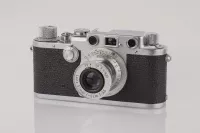
A camera is an instrument for capturing and storing images...
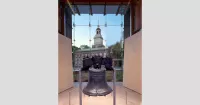
Philadelphia or Philly is Pennsylvania's most populous city and the...
Trending
1 month ago Newly Built Chinese Bridge Collapses Months After Opening, Raising Safety Concerns
1 month ago Texas A&M Aggies: CFB Playoff Rankings, Lane Kiffin's Defense, and Playoff Picture
2 months ago US Considers Strikes on Venezuela Over Drug Trafficking; Trump Denies Plans
7 months ago Russian Bridges Collapse: Train Derailment Claims Lives Near Ukraine, Leaving Seven Dead
6 months ago NYC Mayoral Race: Brad Lander Gains Momentum with Key Endorsements
6 months ago Brooklyn Center police shot man wielding chainsaw; BCA investigating incident.
Popular
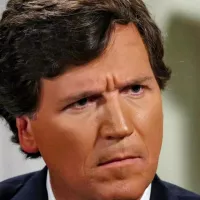
Tucker Carlson is an American conservative political commentator known for...

Candace Owens is an American conservative political commentator and author...

XXXTentacion born Jahseh Dwayne Ricardo Onfroy was a controversial yet...
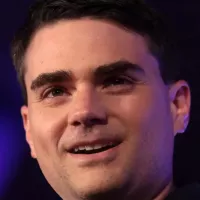
Ben Shapiro is a prominent American conservative political commentator media...

William Franklin Graham III commonly known as Franklin Graham is...

Bill Gates an American businessman and philanthropist revolutionized personal computing...
